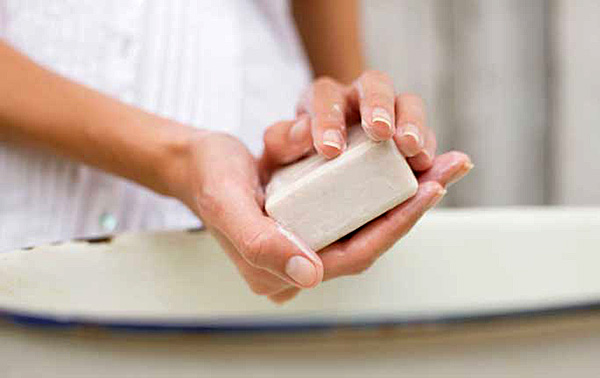In hospitals, people use soaps containing triclosan antibacterial substances in order to reduce the risk of severe infections. This does not mean that this kind of soaps can be safely used at home.
After more than 40 years of study, the Food and Drug Administration (FDA) says there is no evidence to indicate that substances used in antibacterial soaps helps prevent germs. On the contrary, evidence suggests that they may present risks to health.
Regulators said they reviewed the safety of chemicals such as triclosan, after recent studies which have suggested that the substance can interfere at the hormone level, stimulating at the same time, the development of drug-resistant bacteria.
Label that says “antibacterial” is found on a wide variety of soaps, but it seems that most of the time it mislead consumers in making them believe that such products really helps.
“Due to a high exposure to buyers in these products, we, the FDA, we believe that there should be clear benefits brought by the use of antibacterial soaps to offset risks,” said the FDA representative, Andrea Fischer.
Therefore, the Agency granted to producers about 6 months to respond to the planned regulation. Then, until September 2016, FDA will review the situation and decide whether items are “recognized as safe and effective.”
Until then, FDA recommends for people to use ordinary soap and avoid those labelled as “antibacterial”. They also recommend the use of disinfectant gel, alcohol-based (alcohol containing at least 60 percent) to clean the hands when soap and water are not available.
The use of excess anti-bacterial soap may be unnecessarily compared to the antibiotic intake, some studies indicate. These products continue to kill some bacteria, but not all, which can lead to accumulation of super bacteria. In other words, in the process we risk destroying good bacteria and favour the most dangerous.
Excess antibacterial agents such as triclosan can lead to endocrine disruption. Triclosan is considered to be one of the most common synthetic antibacterial agents used in the cleansing products; it is often found in substances that affect the hormone system of people. Specialists from the Endocrinology Society labeled triclosan as an ingredient that alter levels of thyroid hormones and sex hormones, like testosterone and estrogen.
Representatives from the American Cleaning Institute have brought information to the FDA, that they say, demonstrates that triclosan is equally safe and effective. “Triclosan is one of the most reviewed and researched ingredients used in consumer products and health care,” they noted.
However, FDA warns us to be aware of the potential risks that these products may have on health. Triclosan is present in the house and the human body, being used as soap, personal care products, as well as dish detergents.
Also, when soap is reacted with chlorine-containing water, it can produce dangerous levels of chloroform, a substance that is believed to be a carcinogen. These chemicals that destroy microbes were developed decades ago, before there was a law regulating their use before conducting research. Now, after four decades, FDA takes a proactive measure to examine the safety and effectiveness of these products.

